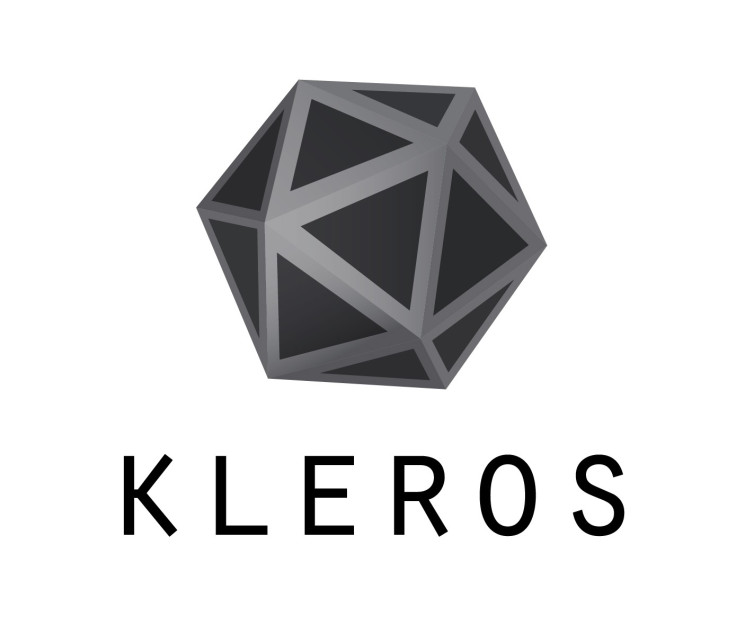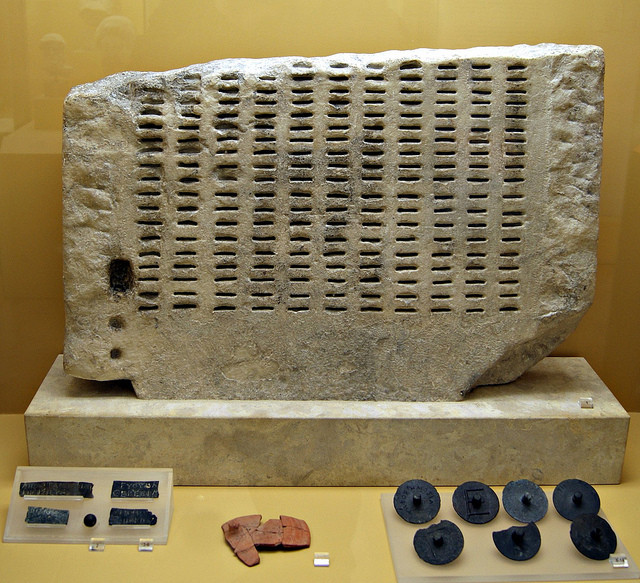Kleros: Ethereum smart contracts meet ancient Greek legal democracy
Kleros borrows from the way the ancient Greeks resolved disputes in a democratic manner, and adds game theoretical incentives via a blockchain token.

Back in the day, people talked enthusiastically about how Ethereum smart contracts could be used to reverse engineer large sections of the legal system; lawyers might soon be out of a job, they said (sniff).
Blockchain-backed dispute resolution has reached a more practical phase now and we see its power focused on places where basically no lawyer would go. An example of this might be a dispute over a relatively small amount of money paid in some online context and involving two parties in different parts of the world.
Ethereum based Kleros borrows from the way the ancient Greeks resolved disputes in a democratic manner, and adds game theoretical incentives via a blockchain token. For anyone who is unclear, smart contracts are executable programs run on top of an immutable distributed database whose inputs and outputs are maintained consistently by a consensus protocol.
Ancient Greek society used an allotment machine called the Kleroterion (from which Kleros takes its name) to allocate citizens for jury service. A small bronze plate called pinakion was used to identify a citizen of a city, and which tribe they were from. This plate was randomly aligned with marbles dropped into the machine in a kind of roulette to decide who was to take part in jury duty that day.

Kleros also selects its dispute resolution jurors randomly. They also tend to be from some particular "tribe"; they might be experts in website construction, for instance, and use their expertise to vote on a dispute involving websites built by some party and supplied to another, who is unhappy with what they were given.
It's a kind of opt-in court system which forms part of the smart contract design, and which is only invoked as the final level of mediation if the buyer and seller are unable to resolve the disputed transaction themselves.
When they opt-in, contract creators choose how many jurors and which court will rule their contract if a dispute occurs. A software development contract will choose a software development court; an insurance contract will select an insurance court, etc. The mediators remain anonymous and are financially rewarded for this service.
Dr Federico Ast, founder of Kleros, pointed out that our current legal system, which relies exclusively on a small amount of professional experts (lawyers and judges), was only established in the 18<sup>th Century with the advent of nation states. The ancient Greeks managed to solve disputes without having specialists like lawyers.
Dr Ast said: "The world has changed and we have very different disputes, involving parties in other countries and online. So all these legal systems that were built in 18<sup>th Century, they don't seem to do a good job of solving the disputes that we are starting to have in the 21st century.
"We can have global disputes across jurisdictions. This was unthinkable 50 years ago; you didn't have a $1000 dispute with some guy half way across the world."
Using the example of someone in Guatemala building a website for someone in Buenos Aires, it would be agreed that the fee is locked in a smart contract. If everything goes right, and the website is delivered and it looks good, the payment is done and everyone is happy.
But if there is a dispute, the money will stay locked into the smart contract and Kleros will select a jury to solve that dispute - in this case a jury of website experts, who will analyse the evidence and the contract, and decide which party is right and vote on it.
In the case of a small claim around a car crash, for example, Kleros could source a jury of experts in transit law who would examine a photo of the crash. They would look at what the insurance company says and what the driver says, and the case could be arbitrated in a much faster and cheaper way than having to go to court.
The Kleros system is an interesting way to bridge the gap between smart contract automation and the world of legal contracts; it can take into account arbitrariness in contracts, or the context changing, as in force majeure. As Dr Ast points out, "a future ruled by smart contracts exclusively - it would be a quite scary world".
Kleros incentives participants using a protocol named after the Greek identity and reputation token pinakion (PNK). It could be used to incentivise someone who is a website designer during the day to make a bit of extra money in the evening by using their expertise to arbitrate on disputes between the buyers and sellers of websites.
Dr Ast said: "This is the where game theory comes to play. If you have ten guys who vote one thing and you have one who voted differently than the others, you can have the presumption that this guy who voted differently did not really take a deep look at the evidence; perhaps he just voted quite randomly, just to collect the arbitration fee, to collect the money for the jury."
According to the Schelling Point for each contract decision, the experts should probably arrive at a similar decision about who is right. The guy who voted differently from the others is going to lose his token, which will be transferred to the rest of the jurors who voted in a coherent way.
"This creates an incentive for every juror to try to vote honestly because they expect others to vote honestly and having the same evidence, they should all arrive at the same decision," said Ast.
But what about 12 Angry Men? In other words, it's not always the case that an outlier is voting wrongly.
"I get asked this a lot," said Ast, "but remember that in 12 Angry Men, these are 12 guys in a room and they are deliberating. Here the jurors do not deliberate; they just vote in the present and they do not communicate with each other and they don't know what the other is going to vote.
"So it's like the Prisoner's Dilemma: these guys cannot communicate to each other so they don't know what the other is going to vote."
In terms of applications, the Kleros system is being added to Ink Protocol, a Y-Combinator backed decentralised reputation and payments system for P2P marketplaces. Kleros will be put to the test shortly in the real world, as Ink's protocol is set to integrate with Listia and its ten million users this year.






















